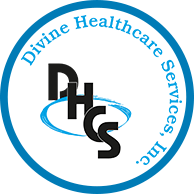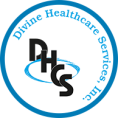Our Outpatient Substance Use Disorder Treatment programs address substance abuse through comprehensive and collaborative services and we work closely with patients who have a current or past history with substance abuse. Providing the most accurate level of care can help the patients gain the best treatment available and prevent potentially serious complications.
Our treatment services include the following;
Individual and Group counseling
Counseling can take place in an individual or group session. By speaking with our staff, patients gain a better understanding of their substance abuse and the factors contributing to it. In group therapy, each patient may share their stories and learn from the experiences of others, decreasing feelings of loneliness and isolation common to active addiction.
Comprehensive Case Management
Our staffs work with patients to guide them through the care service. They help advocate on behalf of the patient, ensure continuity, and remove barriers to accessing the care. They also continue to coordinate between the patient and the prescriber and provide necessary recovery support to the patient until full recovery.
Medication-Assisted Treatment (MAT)
In DHCS we identify patients with substance use disorder, provide the necessary information on MAT as a potent treatment, allow the patients to take decisions and if acceptable, provide easy access to treatment up to recovery support.
Recovery Support Services (RSS)
RSS are aftercare support services designed to help individuals become and stay engaged in the recovery process and reduce the likelihood of relapse. RSS emphasizes the patients’ central role in managing their health and recovery and promotes the use of effective self-management and coping strategies, as well as internal and community resources to support ongoing self-management.
We also utilize an array of industry-recognized evidence-based practices in order to provide effective substance use treatment services. These include Cognitive-Based Therapy (CBT) and Motivational Interviewing (MI).
Cognitive Behavioral Therapy (CBT)
Cognitive-behavioral therapy (CBT) is a therapeutic approach that seeks to reshape negative or self-defeating thoughts and behavior. CBT is aimed at both thought and behavior change (i.e., coping by thinking differently and coping by acting differently). CBT includes a focus on overt, observable behaviors – such as the act of abusing a drug – and identifies steps to avoid situations that lead to drug abuse
Our counselors combine elements of behavioral theory, cognitive social learning theory, cognitive theory, and therapy into a distinctive therapeutic approach that helps patients recognize situations where they are likely to use substances, find ways of avoiding those situations, and learn better ways to cope with feelings and situations that might have, in the past, led to substance. We seek to help the patient increase his coping skills so he will not use drugs in high-stress situations.
Motivational Interviewing (MI)
Motivational Interviewing (MI) is a patient-centered, empathic, but directive counseling strategy designed to explore and reduce a patient’s ambivalence toward treatment by paying particular attention to the language of change. As a patient-centered care we apply a collaborative approach to our treatment services that emphasizes respect for the patient (adult and youth) and care that is responsive to an individual’s preferences, needs, wellbeing, and values. Our counselors understand how youth’s cognitive processes differ from those of adults. This helps us create and have good conversation and strategic approaches in youth’s treatment in MI.
Don’t postpone the treatment you need today. Treatment is about developing healthy ways to cope. Call us today.



